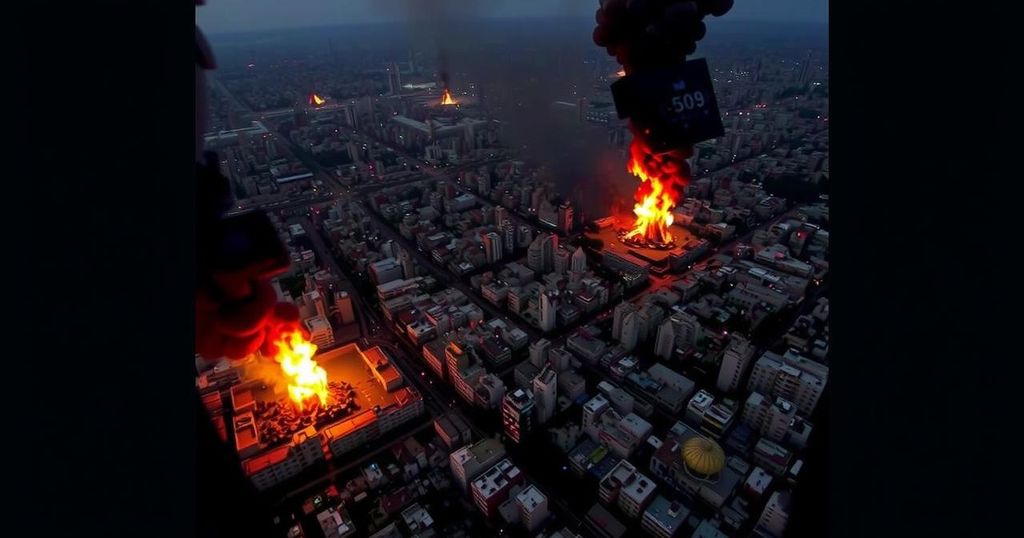Israeli air strikes have escalated in Beirut and Gaza, resulting in casualties among civilians, including children. A recent attack on a school in Gaza City killed three people and highlighted the potential for famine in northern Gaza. The UN reports a high proportion of victims are women and children, representing serious violations of humanitarian law. Regional violence also extended to incidents in Amsterdam involving Israeli football fans, indicating the conflict’s broad impacts.
Recent Israeli air strikes have intensified, targeting various locations in Beirut and Gaza, resulting in significant casualties. Reports indicate that at least three individuals were killed when Israeli forces bombed a school in the Tuffah neighborhood of Gaza City, an area housing displaced persons. The attacks in Talaat say highlight a severe humanitarian crisis, with the UN describing the situation as a potential famine in northern Gaza, where approximately 70 percent of those killed are women and children, according to the UN Human Rights Office. In a broader context, the United Nations Interim Force in Lebanon (UNIFIL) is encountering escalating violence, with at least 40 instances of damage and injury reported against its personnel since mid-October, eight of which are attributed directly to Israeli actions. This pattern underscores the operational strains that peacekeeping forces are currently enduring in a volatile regional environment. Additionally, recent violence extends beyond military engagements, with Israeli football fans inciting strife in Amsterdam during a match against Maccabi Tel Aviv. This series of events illustrates the multifaceted nature of the conflict and its repercussions on communities far beyond the immediate areas of military engagement. Live coverage of these developments continues, highlighting the urgency of the ongoing situation in Gaza, Lebanon, and broader regional dynamics. The situation remains fluid, with humanitarian organizations warning of dire consequences if the violence persists without mitigation. This escalation calls for immediate international attention to address the profound humanitarian implications for the civilian populations affected.
The ongoing conflict involving Israeli air strikes in Gaza and Lebanon reflects a critical humanitarian crisis. Notably, international organizations have documented serious violations of humanitarian law, including disproportionate civilian casualties. The UN’s reports about the rising death toll—which predominantly affects women and children—indicate the severity of the current military operations. Furthermore, the potential for famine in northern Gaza poses grave concerns for global food security, prompting urgent calls for intervention. Regional stability is further threatened by incidents outside conflict zones, exemplified by disruptive actions during sporting events.
In conclusion, the latest escalations in violence due to Israeli air strikes have inflicted heavy casualties in both Beirut and Gaza, drawing significant humanitarian concerns. The UN’s assessments of civilian casualties emphasize the need for urgent international intervention. Continued violence not only threatens the immediate population but also shows dire implications for regional stability, making it imperative for global leaders to seek strategic resolutions to the ongoing conflicts. The situation demands vigilant international scrutiny and humanitarian assistance to alleviate the suffering of affected populations.
Original Source: www.aljazeera.com







